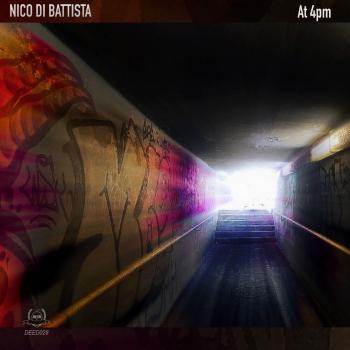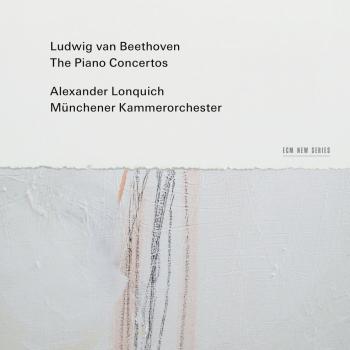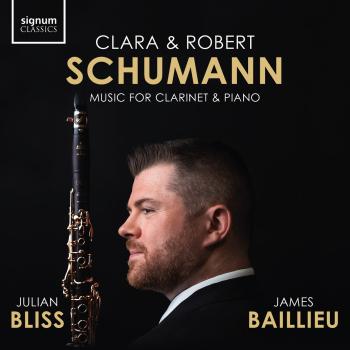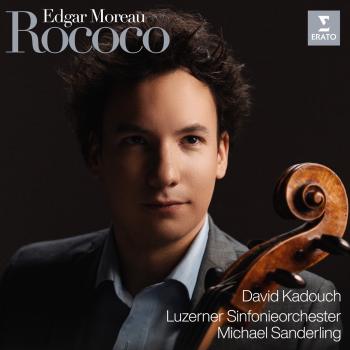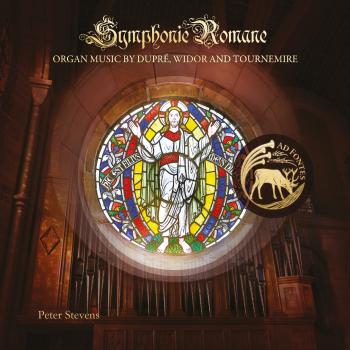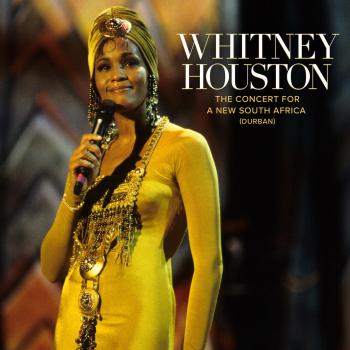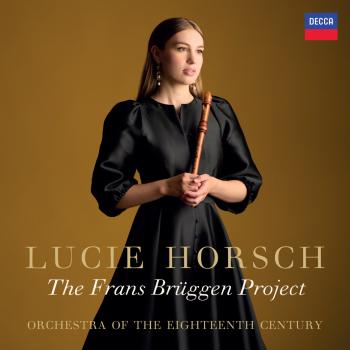
Liszt: Via Crucis Collegium Vocale Gent, Reinbert de Leeuw & Marnix de Cat
Album Info
Album Veröffentlichung:
2019
HRA-Veröffentlichung:
05.03.2019
Label: Alpha
Genre: Classical
Subgenre: Choral
Interpret: Collegium Vocale Gent, Reinbert de Leeuw & Marnix de Cat
Komponist: Franz Liszt (1811-1886)
Das Album enthält Albumcover
- Franz Liszt (1811 - 1886): Via Crucis, S. 53:
- 1 Via Crucis, S. 53: Vexilla Regis 04:01
- 2 Via Crucis, S. 53: Station I. Jesus wird zum tode verdamnt 01:16
- 3 Via Crucis, S. 53: Station II. Jesus trägt sein Kreuz 02:09
- 4 Via Crucis, S. 53: Station III. Jesus fällt zum ersten mal 01:20
- 5 Via Crucis, S. 53: Station IV. Jesus begegnet seiner heiligen 02:00
- 6 Via Crucis, S. 53: Station V. Simon von Kyrene hilft Jesus das Kreuz tragen 02:48
- 7 Via Crucis, S. 53: Station VI. Sancta Veronica 02:19
- 8 Via Crucis, S. 53: Station VII. Jesus fällt zum zweiten Mal 01:17
- 9 Via Crucis, S. 53: Station VIII. Die Frauen von Jerusalem 02:05
- 10 Via Crucis, S. 53: Station IX. Jesus fällt zum dritten Mal 01:18
- 11 Via Crucis, S. 53: Station X. Jesus wird entkleidet 01:39
- 12 Via Crucis, S. 53: Station XI. Jesus wird ans Kreuz geschlagen 00:50
- 13 Via Crucis, S. 53: Station XII. Jesus stirbt am Kreuze 05:56
- 14 Via Crucis, S. 53: Station XIII. Jesus wird vom Kreuz genommen 03:17
- 15 Via Crucis, S. 53: Station XIV. Jesus wird ins Grab gelegt 04:49
- Franz Liszt:
- 16 Salve Regina, S. 66 03:25
- 17 Vater unser, S. 29 06:56
- 18 Ave verum corpus, S. 44 02:46
Info zu Liszt: Via Crucis
Neue Referenz: 1878 begann Franz Liszt in Rom mit Via Crucis eine Komposition, die bis heute als eines der herausragenden geistlichen Werke seiner späten Jahre gilt. Für die vierzehn Kreuzweg-Stationen findet Liszt eine musikalische und harmonische Klangsprache von verblüffender Neuartigkeit, dabei arbeitet er mit sparsamsten Mitteln und verzichtet beispielsweise bewusst auf effektvolle Orchesterfarben zur Begleitung des Chors. Reinbert de Leeuw und das Collegium Vocale Gent legen das ergreifende Werk für die Karwoche zusammen mit weiteren geistlichen Chorstücken Liszts in einer vorzüglichen Einspielung vor, die zweifellos als neue Referenz gelten darf.
Collegium Vocale Gent
Reinbert de Leeuw, Leitung
Collegium Vocale Gent
In 2010, Collegium Vocale Gent celebrated its founding forty years before, by a group of friends studying at the University of Ghent, on Philippe Herreweghe’s initiative. They were one of the first ensembles to use new ideas about baroque performance practice in vocal music. Their authentic, text-oriented and rhetorical approach gave the ensemble the transparent sound with which it would acquire world fame and perform at the major concert venues and music festivals of Europe, Israel, the United States, Russia, South America, Japan, Hong Kong and Australia.
In recent years, Collegium Vocale Gent has grown organically into an extremely flexible ensemble whose wide repertoire encompasses a range of different stylistic periods. Its greatest strength is its ability to assemble the ideal performing forces for any project. Music from the Renaissance, for example, is performed by an ensemble of six to twelve singers. German Baroque music, particularly J.S. Bach’s vocal works, quickly became a speciality of the group and is still the jewel in its crown. Today Collegium Vocale performs this music with a small ensemble in which the singers take both the chorus and solo parts. Collegium Vocale is also specializing more and more in the Romantic, modern and contemporary oratorio repertoires. To this end, Collegium Vocale Gent entered into a partnership with the Accademia Chigiana in Siena and since 2011 enjoys the support of the European Union’s Cultural Programme. The result is a shared symphonic choir recruiting singers from all of Europe, in which experienced singers stand alongside young talent. Moreover, Collegium Vocale Gent fulfils an important educational position.
Besides using its own baroque orchestra, Collegium Vocale Gent works with several historically informed instrumental ensembles to perform these projects, including the Orchestre des Champs Elysées, Freiburger Barockorchester and Akademie für Alte Musik Berlin. It also works with prominent symphony orchestras such as deFilharmonie (Royal Flemish Philharmonic), the Rotterdam Philharmonic Orchestra, the Budapest Festival Orchestra and Amsterdam’s Royal Concertgebouw Orchestra. The ensemble has worked with Nikolaus Harnoncourt, Sigiswald Kuijken, René Jacobs, Paul Van Nevel, Iván Fischer, Marcus Creed, Kaspars Putnins, Yannick Nézet-Séguin and many others leading conductors.
Under Philippe Herreweghe’s direction, Collegium Vocale Gent has built up an impressive discography with more than 80 recordings, most of them with the Harmonia Mundi France and Virgin Classics labels. In 2010, Philippe Herreweghe started his own label φ (phi) in order to give himself full artistic freedom to build up a rich and varied catalogue. In 2011-2012 a new cd with Motets by J.S.Bach (LHI 002) was released, followed by a recording of Choral works by Johannes Brahms (LPH 003) , a new recording of Bach’s Mass in B minor (LPH 004) and T.Lde Victoria’s Officium defunctorum (LPH 005).
Collegium Vocale Gent enjoys the financial support of the Flemish Community, the Province of East Flanders and the city of Ghent. In 2011 the ensemble became Ambassador of the European Union.
Reinbert de Leeuw
born in Amsterdam, is a pianist, conductor and composer. Since 1974 he has been conductor and music director of the Schönberg Ensemble. He is also author of a book on Charles Ives and a book with musical essays and has collaborated on 8 film documentary series of twentieth-century composers such as Messiaen, Ligeti, Gubaidulina, Vivier, Górecki shown on dutch television and which have won international acclaim.
Reinbert de Leeuw regularly conducts Holland's foremost orchestras and ensembles e.g. the Royal Concertgebouw Orchestra. He has toured and performed in festivals worldwide. He was guest artistic director of the Aldeburgh Festival (1992) and was artistic director of the Tanglewood Festival of Contemporary Music (1994-1998). In the 1995-96 season he was the centre point of the 'Carte Blanche' series in the Concertgebouw Amster¬dam. He is involved in the organization of the series 'Contemporaries' at the Concertgebouw Amsterdam.
He is a regular guest in most European countries, the United States, Japan and Australia where he has served as artistic advisor for the contemporary music series of the Sydney Symphony Orchestra from 2000 up to 2004. During that period he has conducted several concerts in Sydney and the Brisbane Festival. Reinbert de Leeuw has been involved in various opera productions at the Netherlands Opera in Amsterdam. His recent productions were Strawinsky (a.o. “The Rake’s progress”), Andriessen (“Rosa, a Horse drama”, “Writing to Vermeer”) Ligeti (“Le Grand Macabre”) and Vivier (“Rêves d’un Marco Polo”).
His recordings as a pianist have won many prizes, including the Dutch Edison, the Premio della critica discografica Italiana, the Grand Prix of the Hungarian Liszt Society and the Diapason D'Or. Some 30 recordings as a conductor have been brought out by Philips, teldec, DGG, Electra Nonesuch, Ovidis Montaigne and cover a wide range of repertoire by Messiaen, Strawinsky, Janacek, Liszt, Gubaidulina, Oestvolskaya, Schönberg, Webern, Vivier, Andriessen and Reich.
Reinbert de Leeuw has received the Sikkens Award (1991) and the prestigious '3M' prize (1992) and in 1994 was made Honorary Doctor at the University of Utrecht and is Professor at the University of Leiden.
Reinbert de Leeuw has been co-founder and from 2001-2010 artistic director of the Summer Academy, the international orchestra and ensemble academy of the National Youth Orchestra. For his performance of Messiaen’s “Des Canyons aux Etoiles” with the Summer Academy Orchestra in 2006, he received the ‘Angel’ for the best performance during the Edinburgh Festival.
Dieses Album enthält kein Booklet

